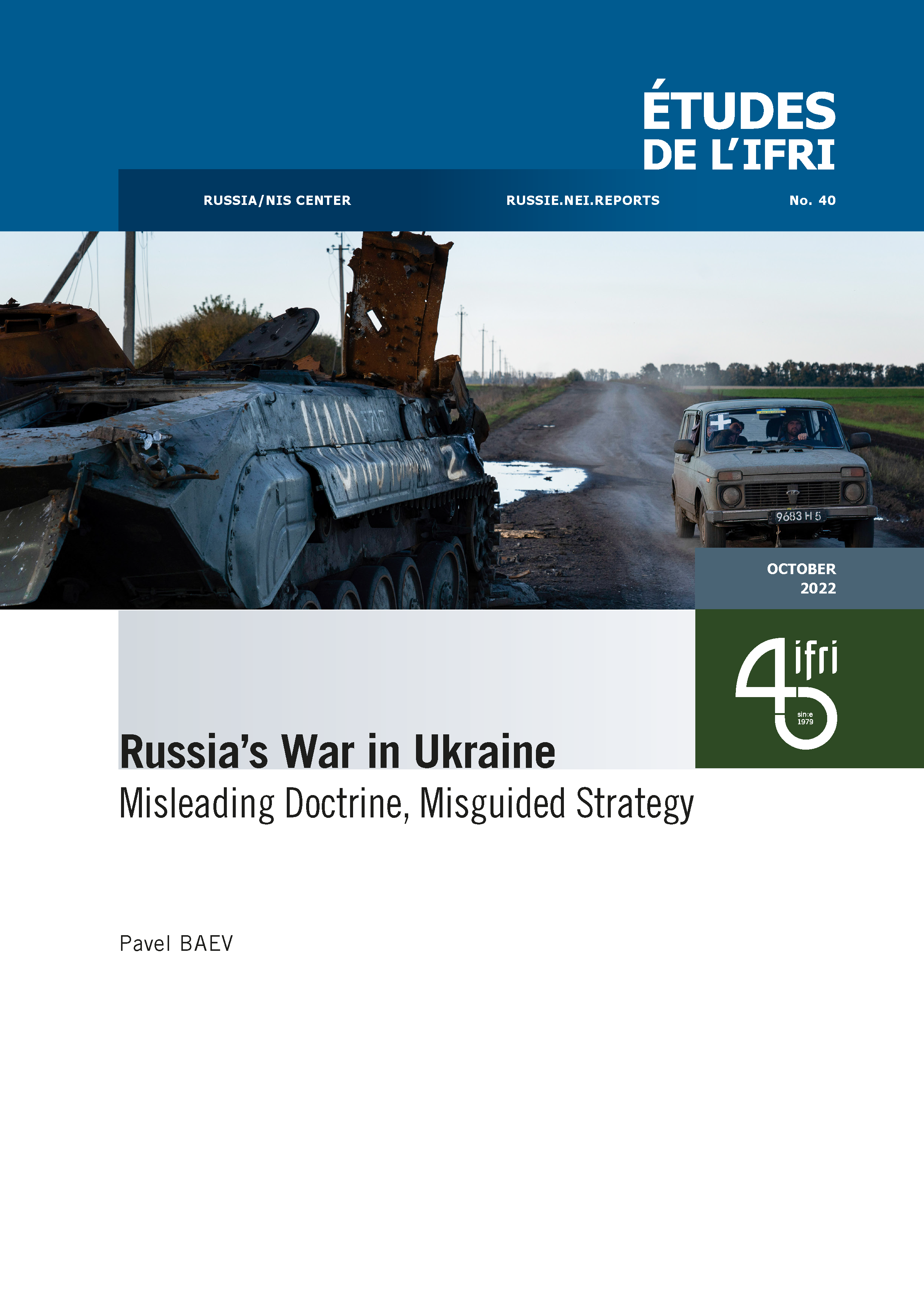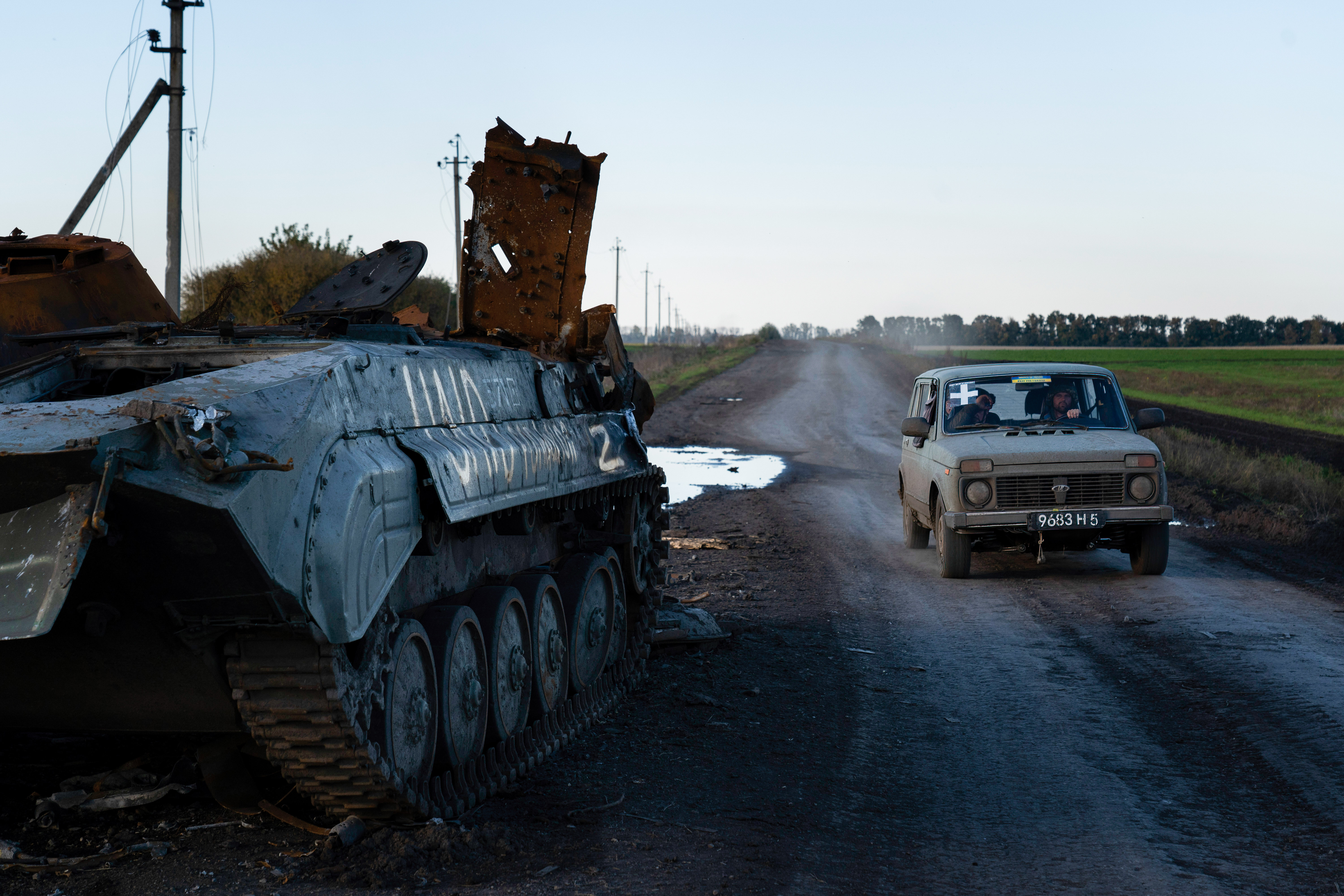Russia’s War in Ukraine: Misleading Doctrine, Misguided Strategy

The blame for committing the blunder of starting the war with Ukraine is deservedly placed on President Vladimir Putin, but a single-explanation interpretation of the unfolding disaster is unsatisfactory.

The scope of problems with the chain of command and logistics, scant air support and poor morale indicates that Russian planning and preparations for the war were seriously flawed and misguided.
On the level of doctrine, the assertion of Russia’s ability to deter North Atlantic Treaty Organization (NATO), defined as the main adversary, by employing the complete set of nuclear, conventional and “hybrid” capabilities, laid the foundation for the failure of attack on what was presumed to be a frangible Ukraine. Strategic guidelines on gaining a quick and complete victory by establishing air dominance and executing offensive maneuvers by armored battalion tactical groups (BTGs), led to the confusion of poorly coordinated attacks without proper air support. The strategic culture, pro-forma conservative but distorted by bureaucratic sycophancy and corruption, produced inflexible chains of command, demoralization of poorly led combat units and ugly atrocities.
The sum total of these flaws is too high for the Russian army to learn useful lessons in the six months of fighting, so it has fallen back on the old pattern of positional warfare based on destroying the enemy by heavy artillery fire. The strategy of protracted war of attrition can lead to victory only if the economy and society are mobilized fully for delivering the necessary resources to the fighting army, but such mobilization—while proceeding in defiant Ukraine—remains politically impossible in discontented, isolated, and economically degraded Russia.
Dr. Pavel K. Baev is a Research Professor at the Peace Research Institute, Oslo (PRIO). He is also a Senior Non-Resident Fellow at the Brookings Institution, Washington D.C., and an Associate Research Fellow at Ifri, Paris.

Available in:
Regions and themes
ISBN / ISSN
Share
Download the full analysis
This page contains only a summary of our work. If you would like to have access to all the information from our research on the subject, you can download the full version in PDF format.
Russia’s War in Ukraine: Misleading Doctrine, Misguided Strategy
Related centers and programs
Discover our other research centers and programsFind out more
Discover all our analysesThe Caspian Sea as an Emerging Energy Hub : Potentials and Limitations
This report analyzes the prospects of the Caspian Sea region — and its key actors except for Russia and Iran — becoming an important energy hub serving the needs of the European Union (EU).
The European Union's Strategic Test in Georgia
The political crisis brewing in Georgia is of an existential nature for the country. What is at stake is Georgia's future as a democratic and sovereign European nation (EU).
Commanders of Putin's Long War: Purged, Reshuffled and Disgruntled
The trend of reshuffling the Russian top military command in the course of a fast-evolving and far from successful war has progressed unevenly both across the Armed Forces’ structures and in time. The rationale for and timing of the abrupt cadre decisions made by Commander-in-Chief Putin often defy logical explanation, and the rare official clarifications are no more informative than the usual information blackout.
Russian Military Manpower After Two and a Half Years of War in Ukraine
In addition to a military victory in Ukraine, the Russian leadership is planning to build up sizable troop formations for a possible conflict with NATO in the Baltic region and the Kola Peninsula. In particular, current plans aim for the military manpower to grow by about 350,000, reaching a total of 1.5 million soldiers and commanders. In the context of the current conflict in Ukraine, this cannot be accomplished without a new wave of mass mobilization.









